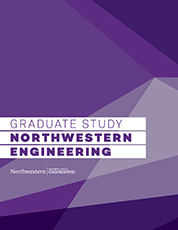Magnetic Memories
For his EDI Thesis project, Yilin Chen (EDI ‘25) created Memento, an app that turns travel souvenirs into emotional time capsules.
There is a rectangular yellow magnet on Yilin (Eddy) Chen's refrigerator with a pineapple on it and the words, "You had me at Aloha." Another magnet has a cartoon illustration of San Francisco's Golden Gate Bridge.
There are more than a dozen magnets in total, each depicting a different place Chen visited. These small, affordable souvenirs became his preferred way to commemorate his adventures.
 However, he noticed a problem that has plagued travelers for generations.
However, he noticed a problem that has plagued travelers for generations.
“When people who traveled with me visited, we looked at those magnets, but we forgot most of the things we had experienced,” Chen said. “The only thing we remembered were the places, not the stories and emotions behind those magnets.”
This realization sparked a journey of its own, leading Chen to develop Memento, a two-part system that reimagines how we capture and relive our most cherished adventures by marrying the traditional travel keepsake with cutting-edge technology.
Memento, created for his Thesis project in Northwestern’s Master of Science in Engineering Design Innovation program, is a combined digital app and physical souvenir system designed to weave together the tangible and intangible threads of travel. The app allows travelers to pin locations on a map, select emotions, and add brief journal entries during their trips. These digital breadcrumbs of experience are then linked to a physical souvenir – typically a magnet embedded with a Near Field Communication (NFC) tag.
After the trip, a simple scan of the magnet with a smartphone transports users back to their journey, displaying a curated “memory recap” of photos and emotional highlights. Think of it as a digital time capsule, activated by a physical touchstone.
Chen’s project took an unexpected turn during the research phase when a conversation with a trauma therapist shifted his perspective.
“I learned that emotion is the most important thing during your trip rather than how accurately you capture those stories,” Chen said. “That was a turning point for me. I realized I should focus on how to pull all of the emotions from your trip.”
That insight aligned with decades of psychological research on the role of emotion in memory formation. It also exemplified a key lesson Chen learned in the EDI program: the importance of user-centered design. Instead of believing something from his perspective, Chen said, he learned to focus on what users are thinking.
While Chen said he is considering creating Memento as a gift for friends and potentially developing it further, he acknowledged the challenges of turning it into a business, particularly regarding data storage and monetization.
Regardless of its commercial future, Memento stands as a tribute to the power of emotional design and the enduring allure of travel memories.
To demonstrate Memento’s potential, Chen orchestrated a surprise for everyone who attended his final presentation. Hidden beneath each of their tables was a custom-made magnet featuring a group photo. As Chen revealed his creation, the room buzzed with excitement. With a quick scan, each student was transported into a digital tapestry of their shared EDI experiences.
“EDI, it's our last day,” Chen told his classmates. “But the memories we made together last forever.”

